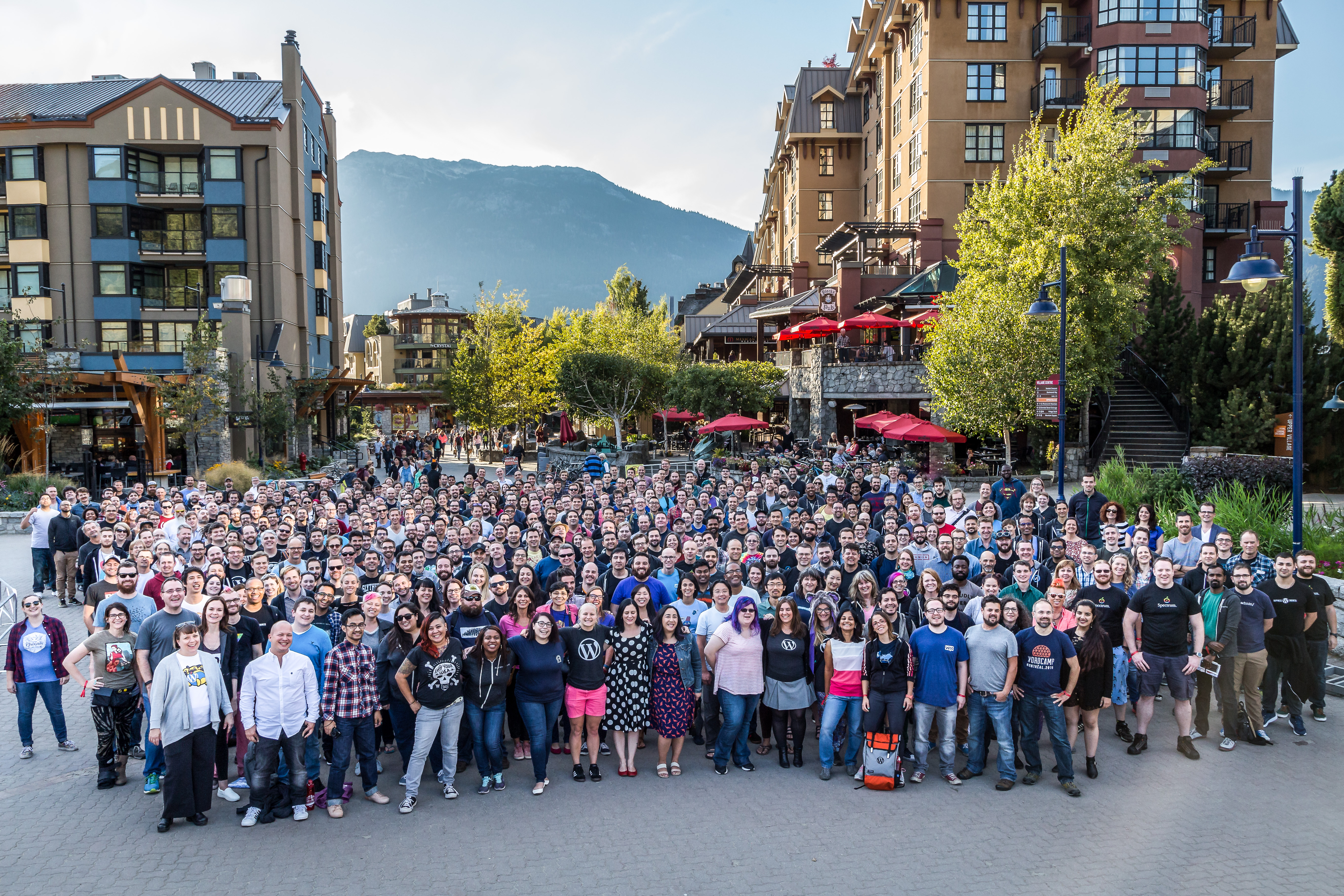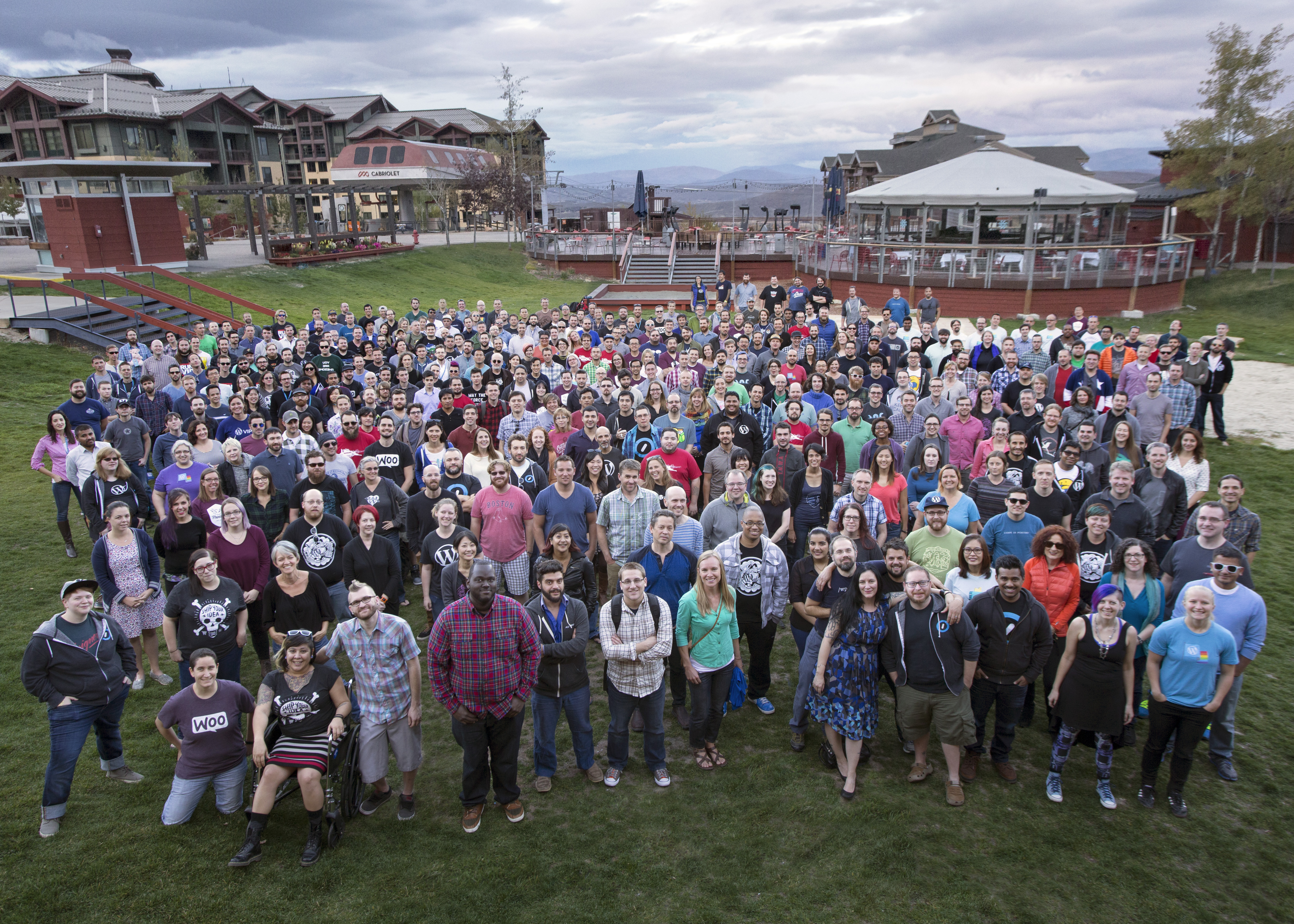I get about a half-dozen emails a year via my contact form asking me this question or asking related questions, like how to craft a resume, or what it’s like to work at Automattic. I thought I’d jot something down so I can just send a link the next time this happens, as my advice hasn’t changed much over time. :)
I’ve been here for seven years as of this writing, so I thought I’d share what I tell people who ask me this question (in a slightly expanded format). I’m not involved in hiring. This is not “official” advice of any kind. It’s just what I say to people, made public and repeatable.
First things first:
I love working at Automattic. You might not.
I will extol the virtues of my job whenever you ask me about it. It’s the best place I’ve worked, and I have found it to be very rewarding.
Not everyone will feel this way. The amount of freedom we have to get or not get our jobs done is unlike anything else out there. It can be very isolating and lonely to not see your team in person more than two to three times per year. I think even those of us who have embraced what we do struggle with this from time to time, and for some it can be significant.
But if you are willing to engage without having to be asked to do so, love working with people who are intelligent and come from all walks of life, and are down with being challenged often, you’ll probably fit in well.
So, how to get a job here? Let’s talk.
Read through our open positions and see if something is right for you.
You can find Automattic’s open positions here. Take a look and see if you spot something you’d enjoy doing and think you can do well. Read the job description and requirements to make sure you understand them and know how you would theoretically fit in the role.
Now, take a strong, focused look at the part of the job listing that talks about how to apply. This is going to be very important. :)
Follow the instructions regarding how to apply. Read them twice.
There are some things you will see in every job listing regarding how to apply. Take note of them and follow them. They are not there at random. Basically:
- Make a resume/CV/whatever you want to call it. Prioritize and emphasize experience and skills that would directly impact the job role, but don’t ignore even side things that make you unique.
- Attach it to an email sent to the address provided in the job description. The email is your cover letter. Introduce yourself. Be concise. This is your first impression, and it’s text-only. (As we are largely a text-communication-driven company, you should get used to this idea.) Make sure you include anything that’s specifically requested in the job description call for applications.
- Double-check your spelling and grammar. Fix anything you need to fix.
- Check it again.
- Once more.
- Send and wait. :)
You might get a trial; you might not. But putting yourself out there is the first step.
(Oh, and if you don’t know about how our hiring works with the trial process, where you perform contract work to see how that goes, you should probably read about that.)
I’m not lying when I say that’s pretty much it. When you boil down the process of applying for a job here, it’s pretty simple. That said:
Here are some focuses/traits I believe in based on my time at Automattic.
Again, let me stress this is my opinion and not in any way “official.” Nothing I say here is even remotely a guarantee, and I don’t have anything to do with hiring (really, I don’t), but these are things I will usually recommend to someone when they ask me personally what they can focus on.
These are mostly things I really like to see or admire in people I work with. :)
Be open to criticism.
It’s totally possible you’ll be rejected for the job, either before or during the trial process. When this happens, you may receive some reasons why you were turned down. Or you’ll receive some constructive feedback during your trial. Be open to it. Embrace the idea that you don’t know everything, because believe me—as a full-time employee for many years now, I still realize this often.
Be dogged in adapting to and implementing that criticism.
I applied to Automattic three separate times over a year-and-a-half before I received a trial. I had to change focus mid-trial before I was hired based on feedback. Some of the best colleagues I have at Automattic went through a trial, received feedback and a rejection, and then trialed again later with success. If and when you receive feedback, take it to heart and then apply it. Or apply again. Or both. :)
Be willing to say up-front when you don’t know something and be open to learning.
I would rather work a million times over with someone who is willing to admit when they don’t know something or are stuck on something and ask for help than someone who tries to fake it. Admitting you need help is not a weakness. It is literally impossible for everyone to be an expert at everything.
Be willing to help others.
I’m big on leading by example. Everyone has gifts and strengths, and everyone is at a different level. Just as you should be willing to let others help you, be willing to share your knowledge and experience with others. Be kind and instructive. Don’t always offer to just take charge of things—though on occasion, that’s necessary—but aim to level up your (potential) team.
Be yourself.
Automattic contains the most diverse and interesting group of people alongside whom I have ever worked. It is an amazing collection of individuals from whom I have learned much and with whom I have enjoyed spending time during meetups. Embrace this and be willing to commit yourself to it as well. (BTW, if the real you is introverted, that’s totally OK. There are lots of us here. If you have to take a break, we understand.)
Have at least a passing familiarity with the Automattic suite of products.
How much of this depends greatly on the job for which you are applying. Some positions might not require a lot of PHP or familiarity with WordPress. Others will be based almost entirely around this. I think it’s a good rule of thumb to at least know the core business of Automattic and what we do before wanting to work here. :)
Embrace open source.
An open source ethos drives Automattic and is core to our identity. Know what that means. Past and ongoing contributions to open source projects, whether it’s code, testing, design, documentation, or whatever, will give you valuable experience in what it’s like to work with those types of projects and is a bonus.
(Again, this will somewhat depend on your desired job role.)
Get comfortable with text-only communication. And in learning how your writing tone can be interpreted.
To be honest, I still have trouble with this sometimes. Text communication is hard. Without vocal inflections, facial expressions, and other body language, it’s easy to read something and get the wrong impression.
It’s a skill to craft your text communication in a way that others will understand your tone and intention. Dedicate yourself to learning that skill. (Yes; sometimes this means using emoji. They are very, very helpful for establishing tone.)
This space reserved.
I’m sure there are things I’m not thinking of, but I have been writing this blog post for three days and I should probably just publish it. If you are a fellow Automattician and reading this, and I forgot something obvious, ping me and let me know. If you are a reader and you have additional questions, feel free to contact me. I’ll edit some things in to this post later if needed.
I will never stop learning. I won’t just work on things that are assigned to me. I know there’s no such thing as a status quo. I will build our business sustainably through passionate and loyal customers. I will never pass up an opportunity to help out a colleague, and I’ll remember the days before I knew everything. I am more motivated by impact than money, and I know that Open Source is one of the most powerful ideas of our generation. I will communicate as much as possible, because it’s the oxygen of a distributed company. I am in a marathon, not a sprint, and no matter how far away the goal is, the only way to get there is by putting one foot in front of another every day. Given time, there is no problem that’s insurmountable.
Like this:
Like Loading...

















